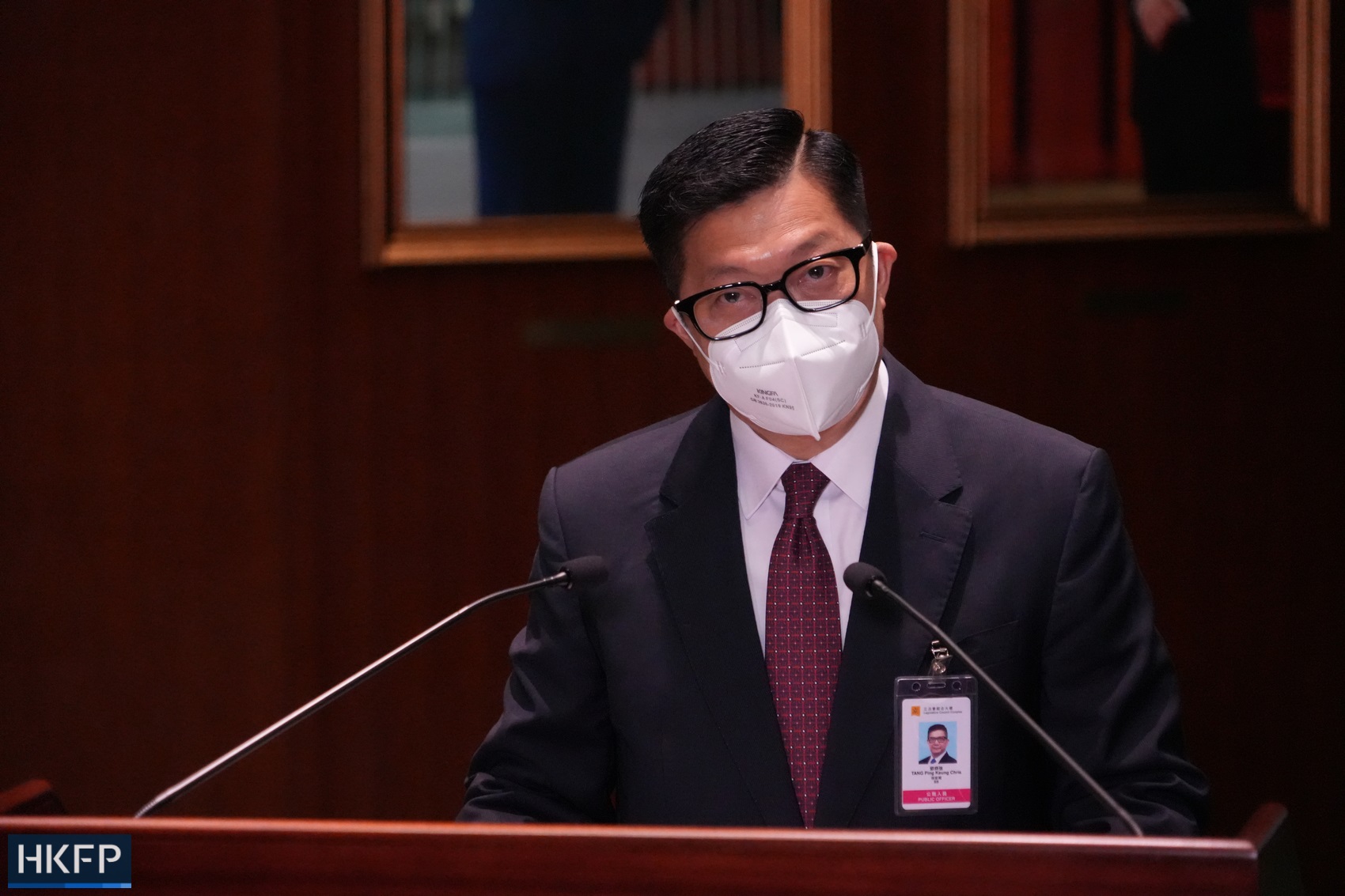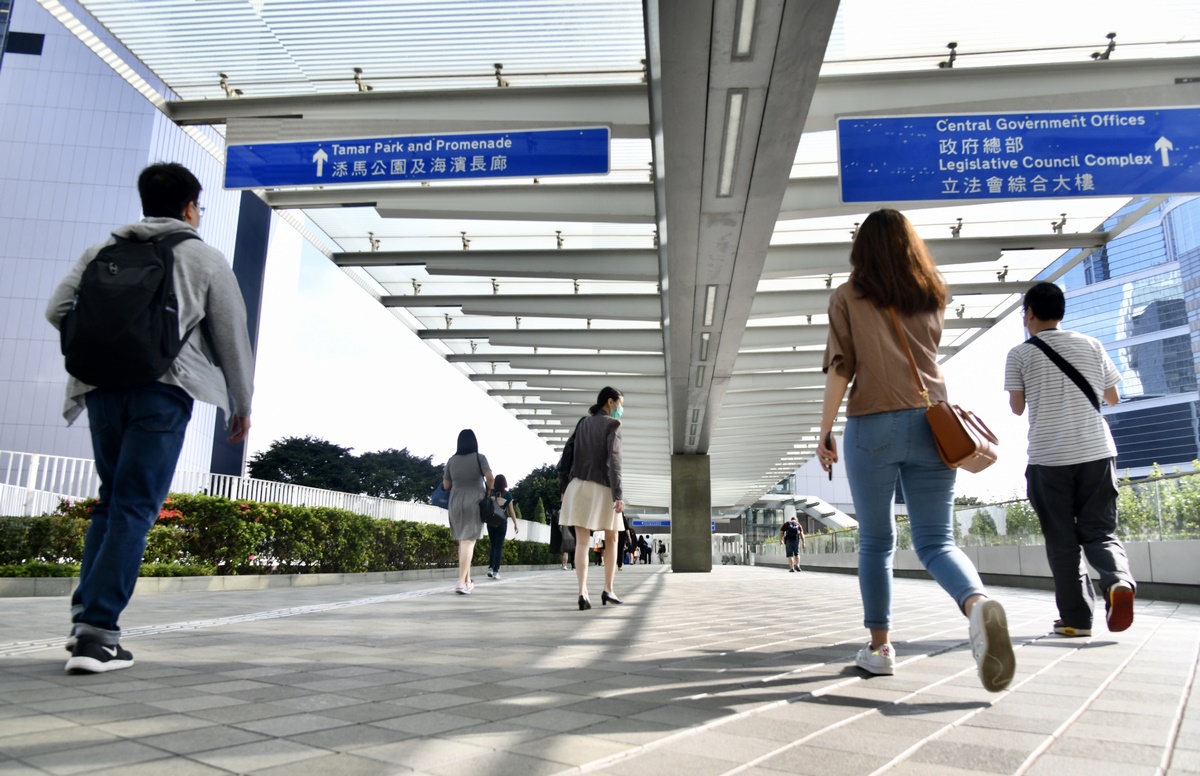People are allowed to criticise the Hong Kong government, but they might be breaking the law if they do so with the intention of promoting hatred among the classes, the city’s security chief said on Sunday.
His comments came after two administrators of a social media group – reportedly a Facebook page known for its sometimes critical coverage of government policies – were arrested by police from the national security department under the colonial-era sedition law last Tuesday.

The pair, who worked for the government, were suspected of disseminating “seditious messages that promote feelings of ill-will and enmity between different classes of the population of Hong Kong.”
Speaking during a Commercial Radio programme on Sunday morning, Secretary for Security Chris Tang said he disagreed that the arrests could be seen to suppress freedom of expression, as it was protected by the law.
However, Tang said that the intention would also be taken into account. People had the freedom to criticise the authorities, Tang said, if they hoped to make the government “perform better.”
But if their intention was “to provoke hatred among others, causing people of different classes to point their fingers at each other, attack each other or even use violence, you might have breached the law,” Tang said.

Sedition is not covered by the Beijing-imposed national security law, which targets secession, subversion, collusion with foreign forces and terrorist acts and mandates up to life imprisonment.
Those convicted under the sedition law, which was last amended in the 1970s when Hong Kong was a British colony, face a less serious maximum penalty of two years in prison.
Other ‘secrets’ pages shuttered
On the same day that the two administrators were arrested, the Civil Servants Secrets Facebook page became inaccessible. The page acted as a platform for anonymous submissions that revealed the internal operations of government departments or aired the grievances of civil servants.
In the days since, a number of similar pages that hosted user-submitted content have also became inaccessible. These included the HA Secrets page – which mainly posted submissions related to the Hospital Authority – and “secrets” pages about the Chinese University of Hong Kong, City University of Hong Kong, and Hong Kong Baptist University.

Additionally, Parents Secrets, a platform for parents to share issues related to their children’s school issues, announced its closure on Thursday. The page, which was followed by more than 44,000 Facebook users, did not give a reason for its sudden shutdown.
Article 23 ‘as soon as possible’
During the radio programme, Tang said the authorities would legislate Hong Kong’s own security law, Article 23, “as soon as possible,” but did not provide a timeframe.
The security chief said he believed that people in Hong Kong had realised that a “colour revolution” could occur in the city after experiencing the protests and unrest in 2019. He said the government must be on guard against any forms of subversion, local terrorism and “anti-government groups.”
In addition, Tang said the authorities had to a better job of reaching out to the youth, as “young people have been continuously influenced by foreign forces for the past 20-odd years.”
Support HKFP | Policies & Ethics | Error/typo? | Contact Us | Newsletter | Transparency & Annual Report | Apps
Help safeguard press freedom & keep HKFP free for all readers by supporting our team
























